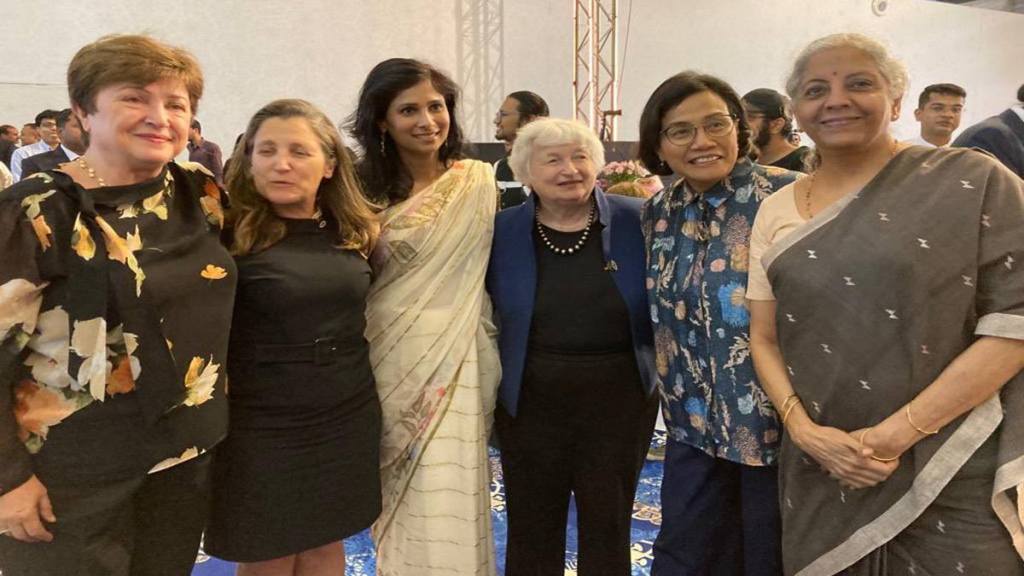With the global medium-term growth prospects remaining weak and the manufacturing sector activity slowing, countries should stay the course on monetary tightening to durably bring inflation down, pursue fiscal consolidation and take growth-enhancing reforms, the International Monetary Fund chief told G20 finance ministers and central bank governors on Tuesday.
To protect the most vulnerable countries and their people, IMF chief Kristalina Georgieva said there is a need to hasten debt restructuring, strengthen the global financial safety net and boost IMF’s resources to increase its firepower to aid debt-stressed countries.
IMF acknowledged that the global economy has shown some resilience. Despite successive shocks in recent years and the rapid rise in interest rates, global growth—although anaemic by historical standards—remains firmly in positive territory, supported by strong labour markets and robust demand for services, Georgieva said.
“We are thus looking at a mixed picture and risks remain on the downside. Inflation could remain higher for longer, requiring even more monetary policy tightening and fragmentation could weigh even more on growth,” she said.
The Global Sovereign Debt Roundtable (GSDR)—co-chaired by India’s G20 presidency, the IMF and the World Bank—is facilitating a common understanding of key issues, including comparability of treatment and information sharing.
“The costs of delay in reaching agreement on needed debt treatments are borne acutely by borrower countries and their people, who are least able to bear this burden,” Georgieva said.
The GSDR is the right forum to push for more progress, including clear timelines, debt service suspension during negotiations and improved creditor coordination on debt treatment for countries outside the common framework.
While advanced and strong emerging market economies have a cushion of more than $10 trillion in international reserves, the rest of the world relies on pooled resources of international institutions such as the IMF, Georgieva said.
“Today, while the IMF has nearly $1 trillion in lending capacity, quota resources—which are critical to ensure the predictability of the IMF’s firepower—have shrunk in relative terms. I appeal to G20 countries to restore the primacy of IMF quota resources by successfully completing the 16th quota review by the end of this year,” she said.
With IMF support for low-income countries having quadrupled in recent years and demand still high, the Fund urgently needs to replenish subsidy resources in the Poverty Reduction and Growth Trust (PRGT), she told G20 finance leaders.
The IMF’s newest instrument, the Resilience and Sustainability Trust (RST), has been funded through on-lending SDRs – a great innovation that transforms a “sleeping asset” of countries in strong positions into firepower to support vulnerable countries. The G20 has reached its target of committing $100 billion for SDR channeling to vulnerable countries. For the IMF, this has mobilised $45 billion for the PRGT and $42 billion for the RST.


